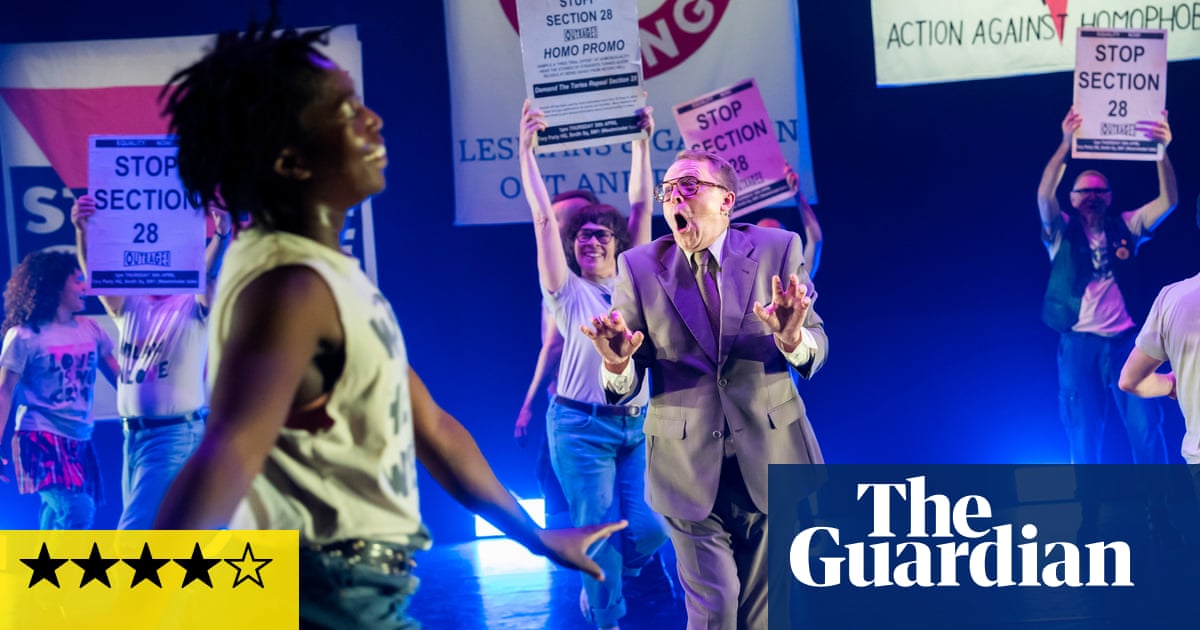Gary Clarke grew up in a Yorkshire mining village in the 1980s and 90s, and the scars left by Margaret Thatcher’s government (and her Tory successors) have informed an impressive dance theatre trilogy that lies somewhere between social history project and cri de coeur. Detention is the final part of the trilogy that began with Coal, looking at the mining industry, followed byWasteland, about the nascent rave culture that sucked in disaffected youth in the midst of those mines’ closures. Detention focuses on the Section 28 legislation brought in in 1988, forbidding the “promotion” of homosexuality. This is the backdrop against which Clarke, and every other young gay man and woman at that time grew up. We see dehumanising political speeches, the bullying, the self-hatred; the bleakness is tangible.
Yet while Detention is about the effects of homophobia, it’s most strikingly a celebration of solidarity. A community cast of older LGBTQ+ people are deftly sewn into the show, some of whom were active in LGSM (Lesbians and Gays Support the Miners, as seen in the film Pride). Others play the role of volunteers at the London Lesbian and Gay Switchboard, a lifeline for many, sitting at a desk with a rotary dial phone: “Hello, Lesbian and Gay Switchboard, how can I help?” We hear text based on genuine calls from the switchboard’s logbook – a young man thrown out of home, a woman scared she’ll lose her children, a man diagnosed with HIV – and watch the dancers’ bodies trapped or in turmoil, eaten up with anxiety.
Clarke’s work has been called “dance-documentary”. It’s activism, but it’s also drama, and Clarke’s sense of structure and storytelling is sound, the dancing is full of dynamism and urgency, sweeping us through the scenes. Most moving is a duet right at the start that embodies the impact of Aids, two men in a clinch that somehow morphs from romance to struggle to one partner desperately supporting his dying lover; flirtation to tragedy in the space of one dance.
Like a darker, dancier version of It’s a Sin, Detention is hard-hitting but laced with humour. It’s a portrait of a particular period in time that still echoes down the decades.
Touring until 15 October
